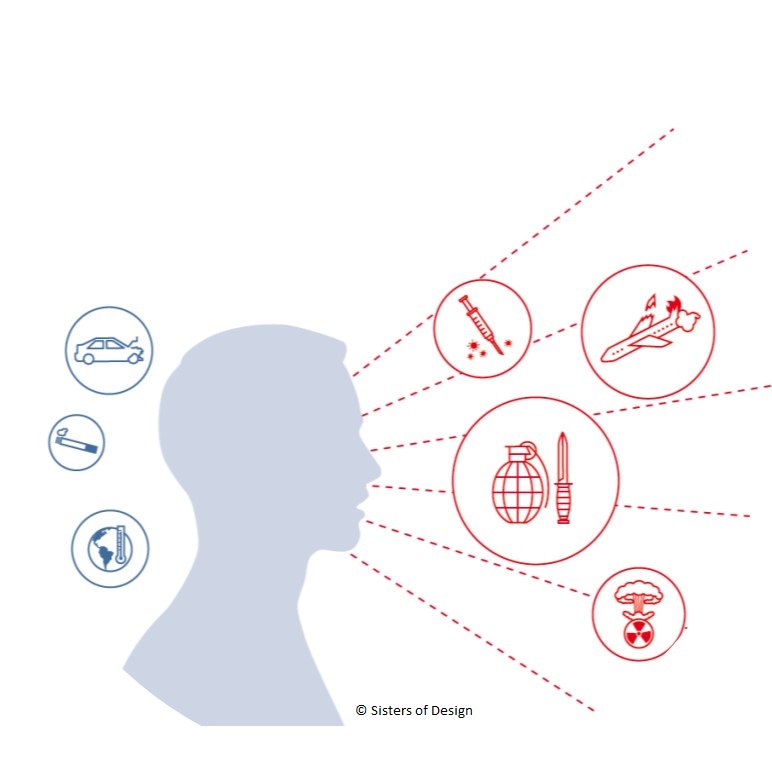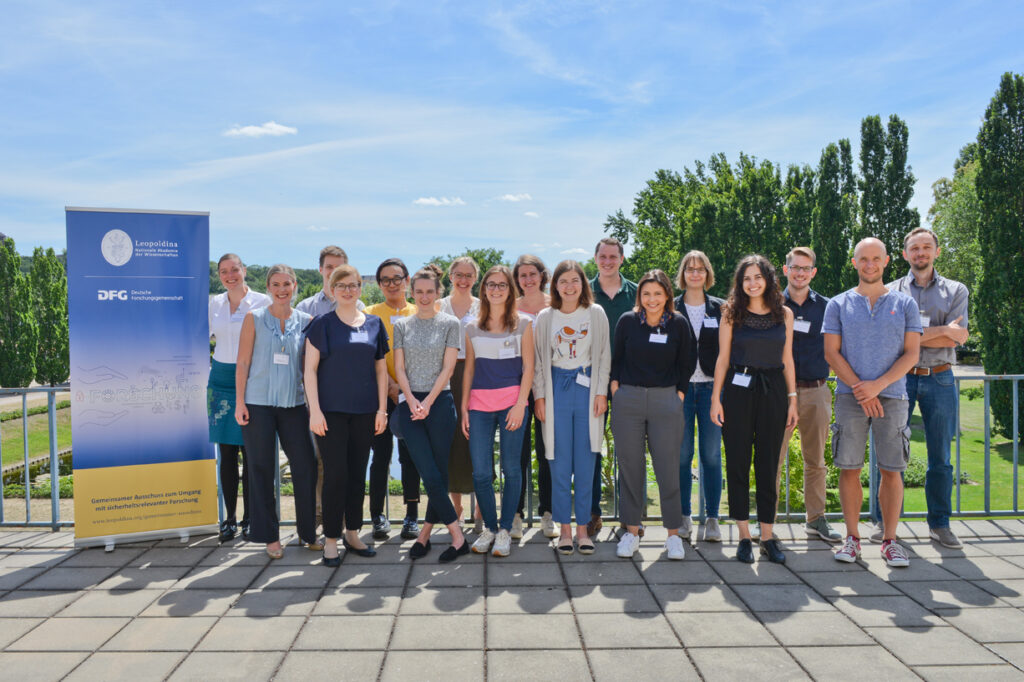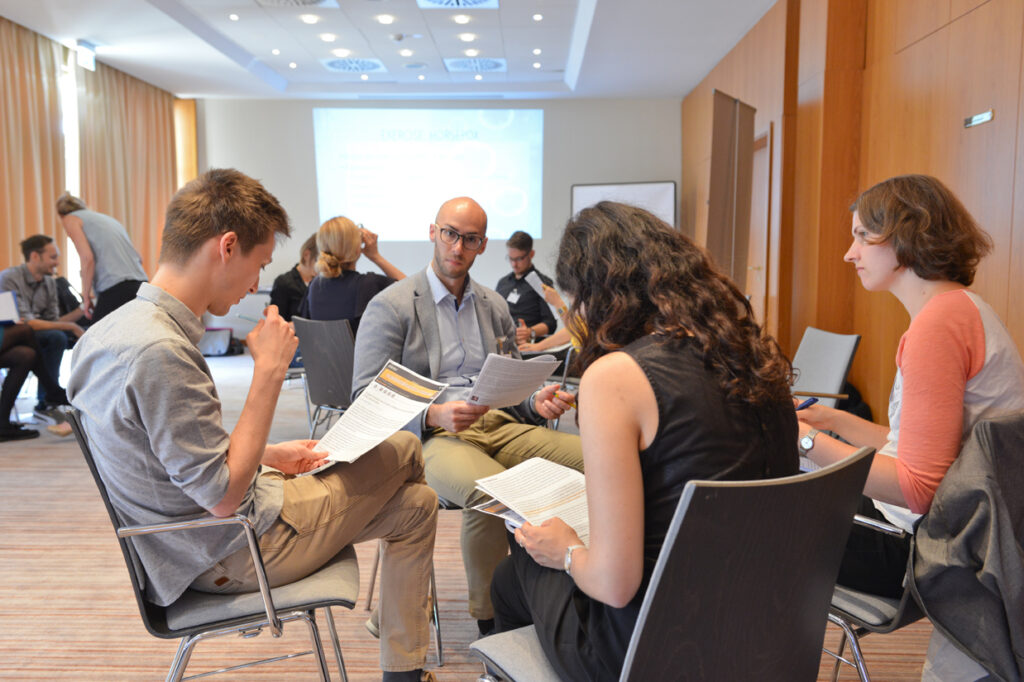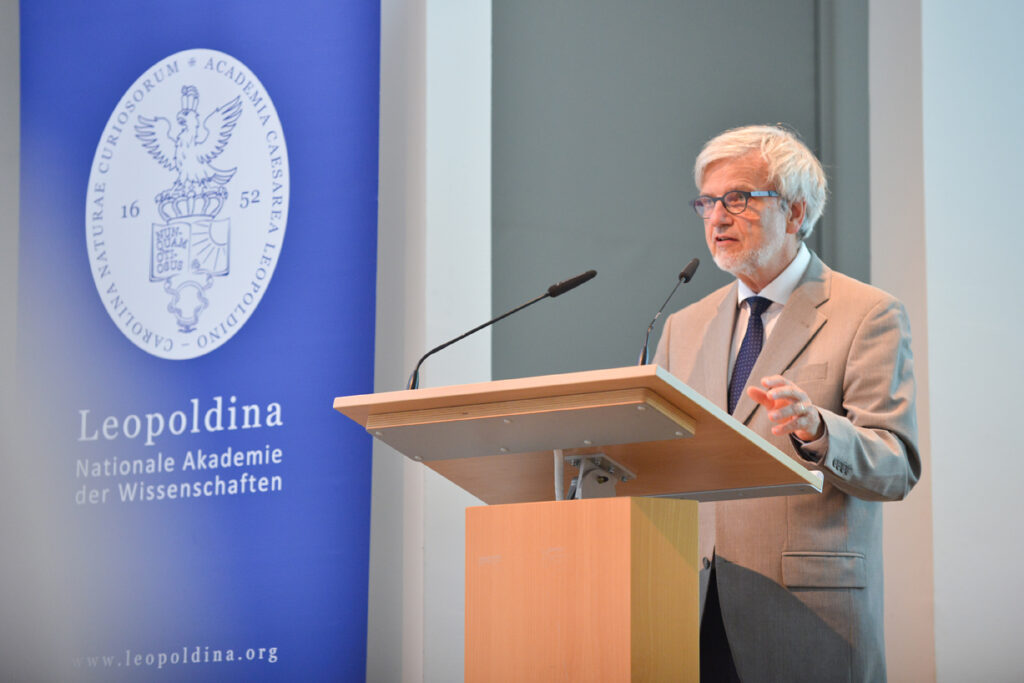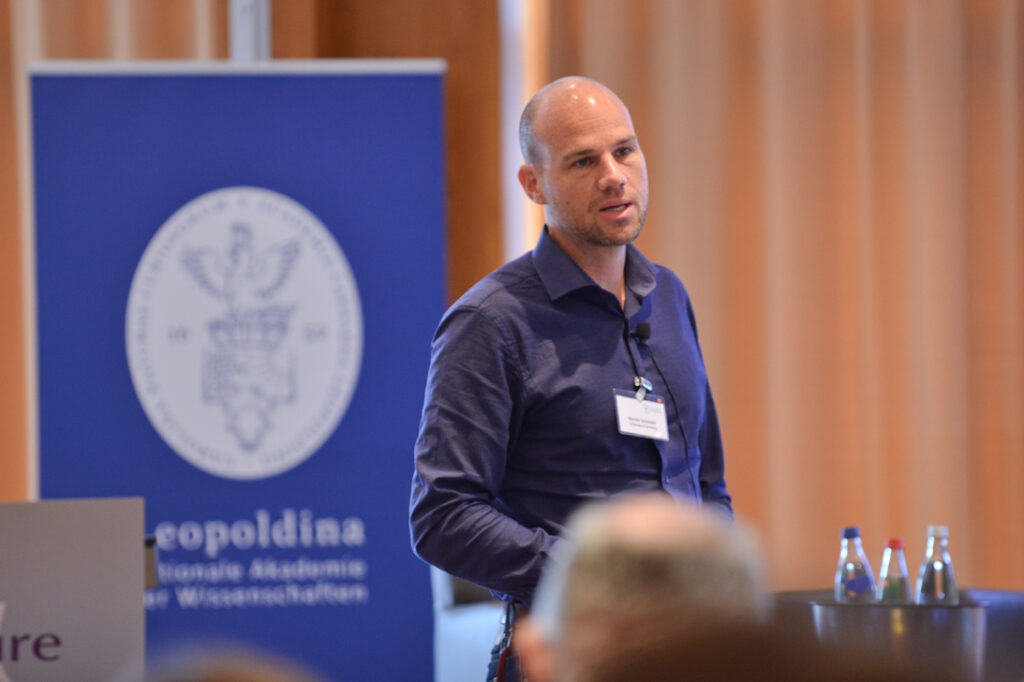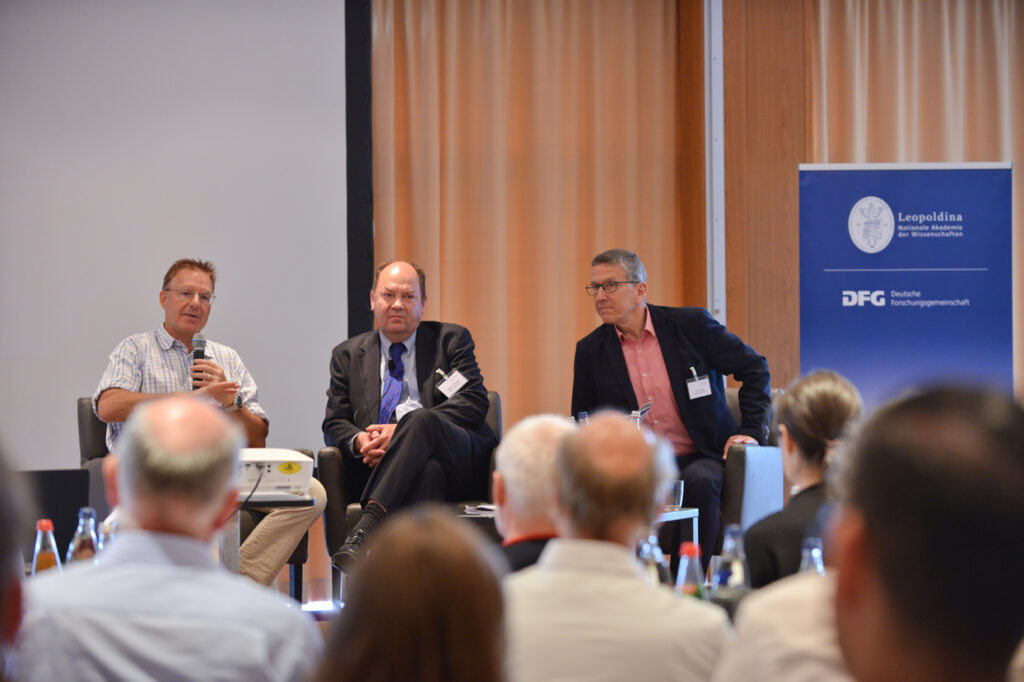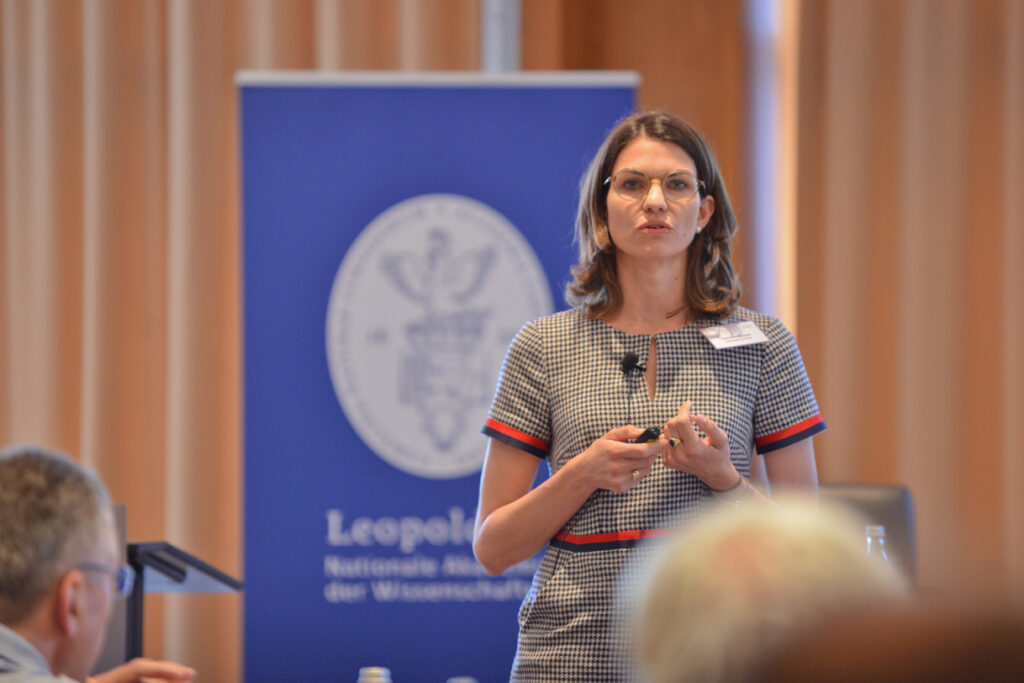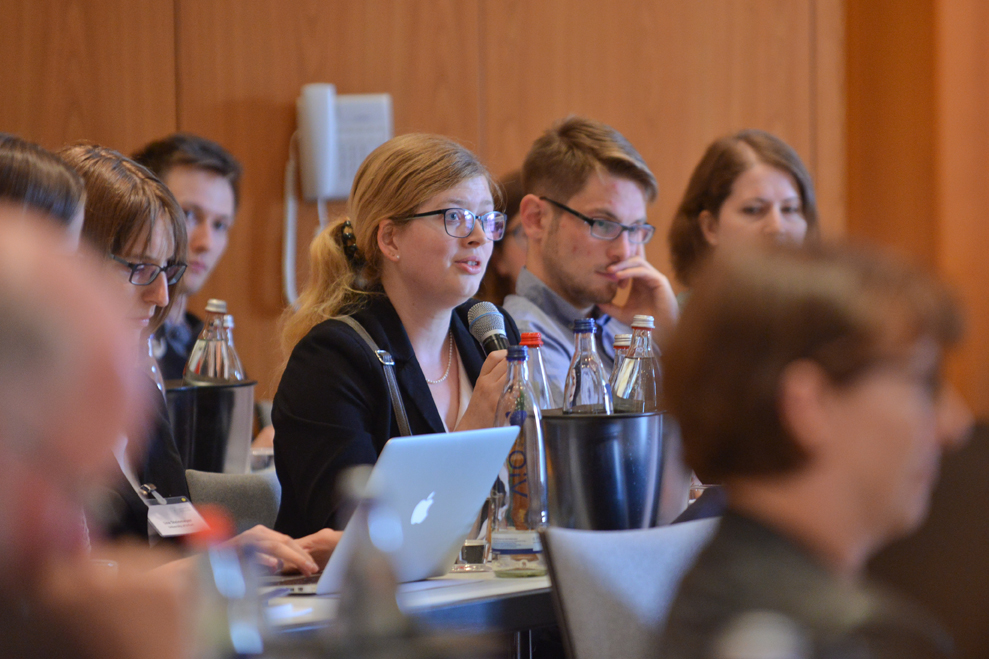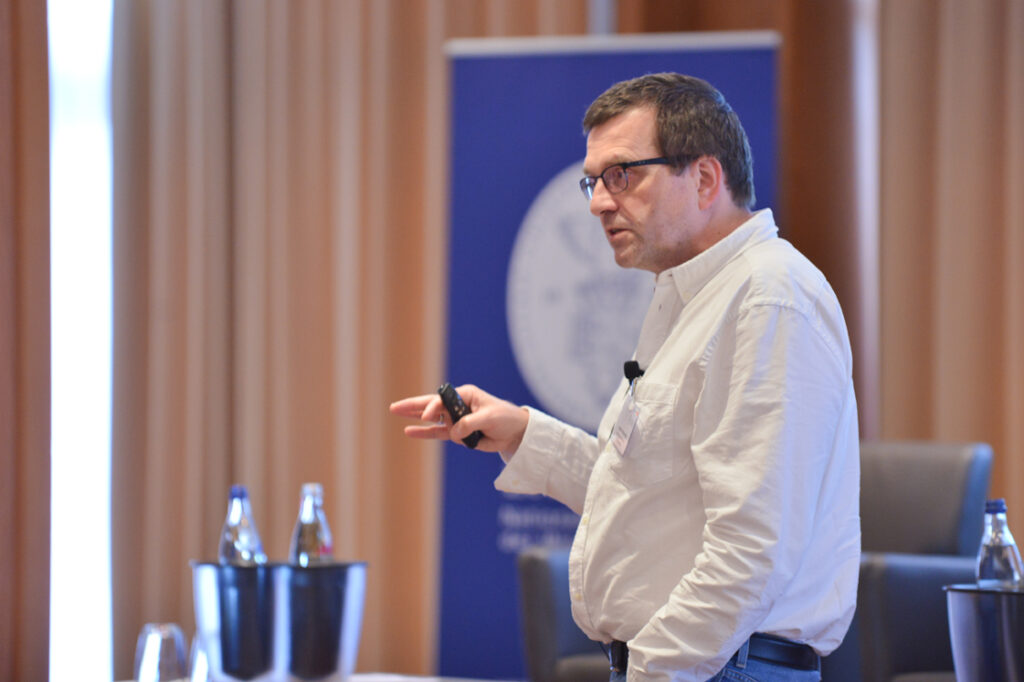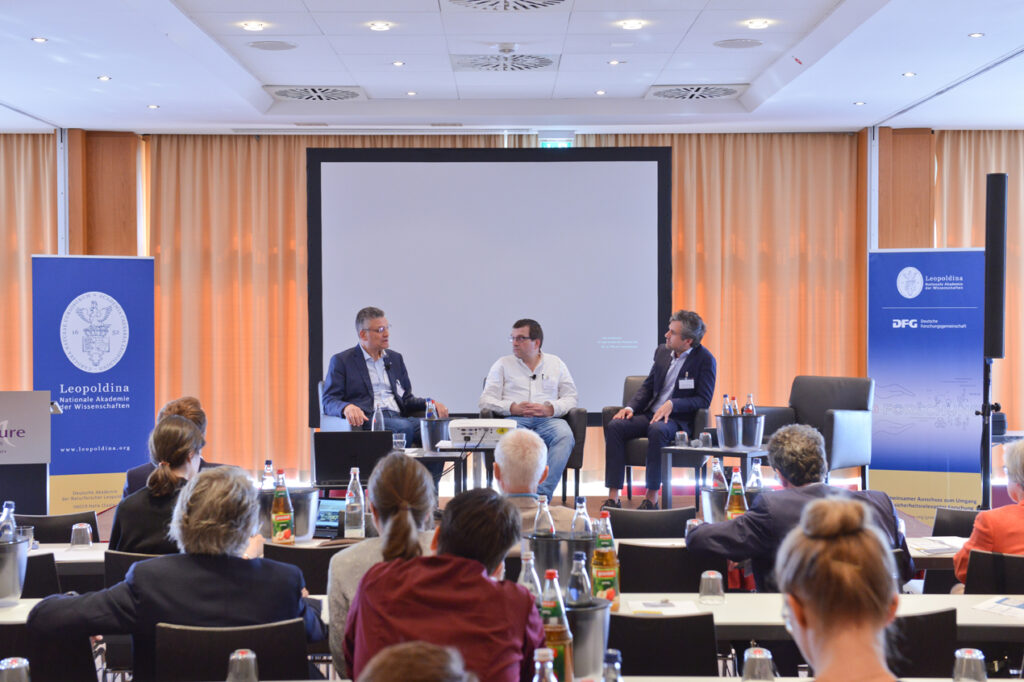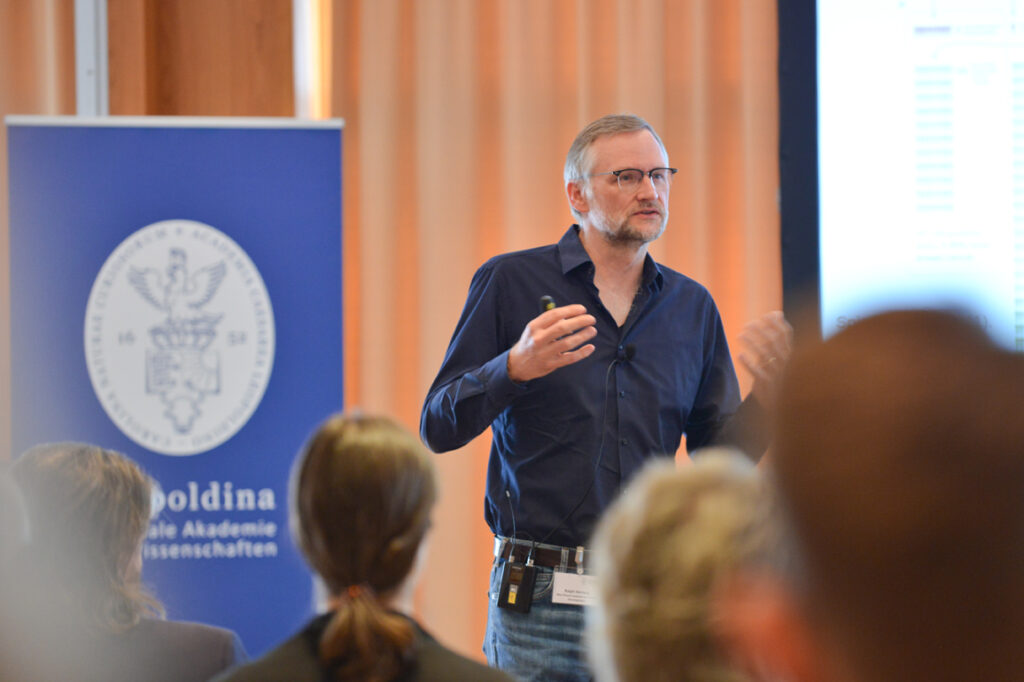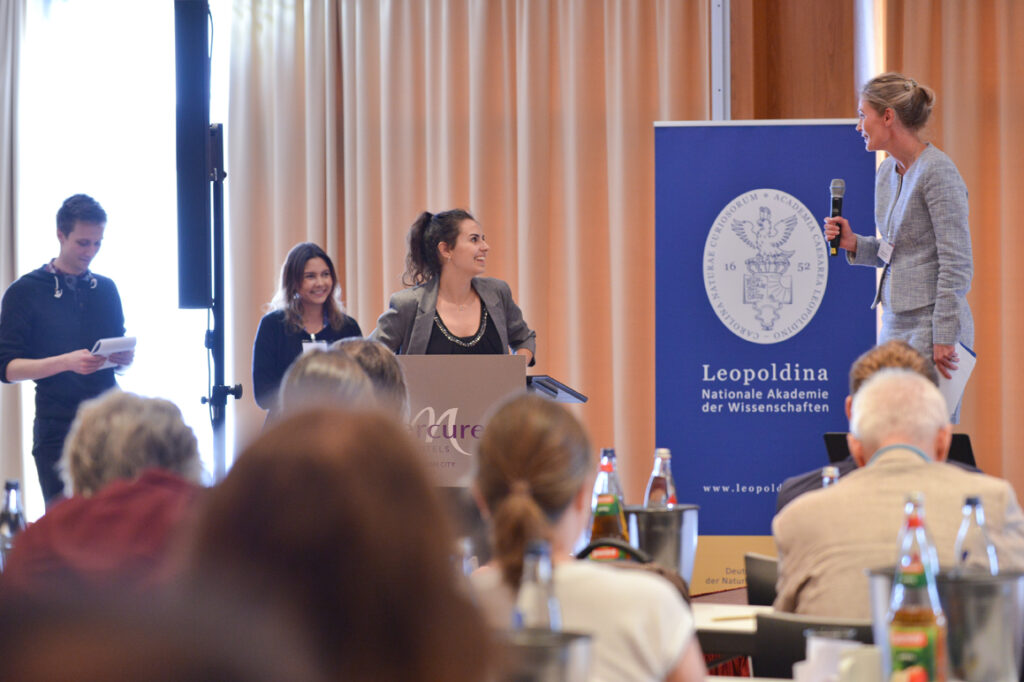The Leopoldina’s international conference format “Crossing Boundaries in Science” aims to identify research areas at an early stage that are particularly dependent on interdisciplinary collaboration. The second conference in the series was organised by the Joint Committee with the financial support of the Alfried Krupp von Bohlen und Halbach Foundation. It was entitled “The mystery of risks – How can science help reconcile perception and assessment?” and was held from 4 to 6 July 2019 in Potsdam.
Among the key issues addressed was the role of science in assessing and evaluating risks that are relevant to society but tend to be generally misperceived and what can be done the improve the situation.
In the run-up to the conference, the Joint Committee, together with Filippa Lentzos from King’s College London, held the workshop “Risk Governance and the Role of Science and Humanities” to raise awareness of the ethical aspects of security-relevant research among students from Germany, Austria, Belgium, China and the United Kingdom. The workshop also prepared students for the contents of the conference so that they could participate in the discussions and report on the lectures afterwards as part of the official conference programme.
The speakers at the conference addressed issues including the social construction of risks and the heterogeneous and subjective perception of them. Another question was whether the precautionary principle curbs scientific progress. The misperception of risks was then discussed among scientists from sociology, economics, psychology, medicine, meteorology and biology and other fields. In his keynote lecture, Ortwin Renn focused on systemic risks related to natural events, environmental threats, financial crises and cyber risks. Following his introduction to these types of risks, which tend to be under or overestimated by the general public, other speakers elaborated on them in greater depth. The social construction of risks plays a large role here, particularly as they tend to be rated on the basis of emotions rather than facts. This explains why a large part of society wrongly regards terrorism as a greater risk than car accidents. The task of science, the speakers explained, is to try and clear up these misperceptions by providing clear and objective information on such risks.


